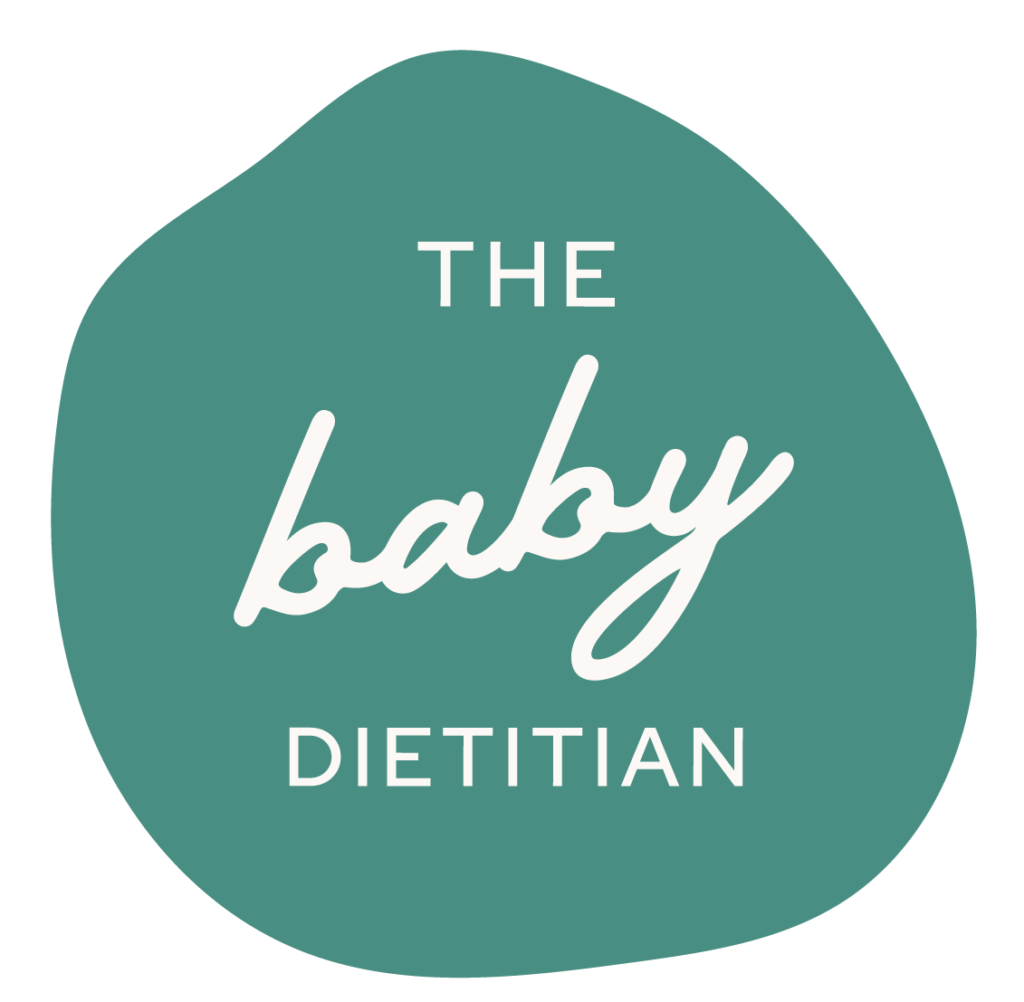Summer Hydration Tips for Infants and Toddlers
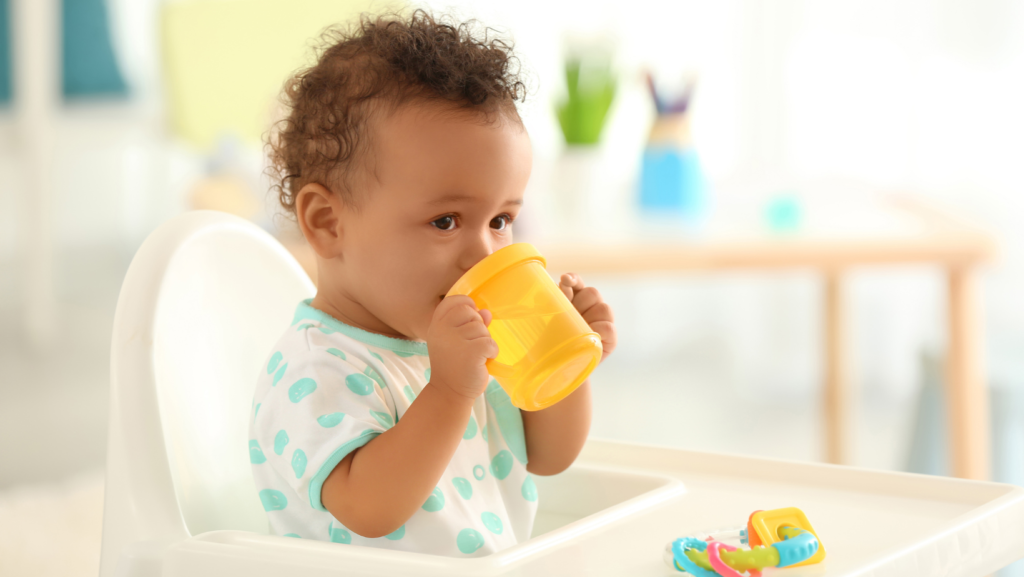
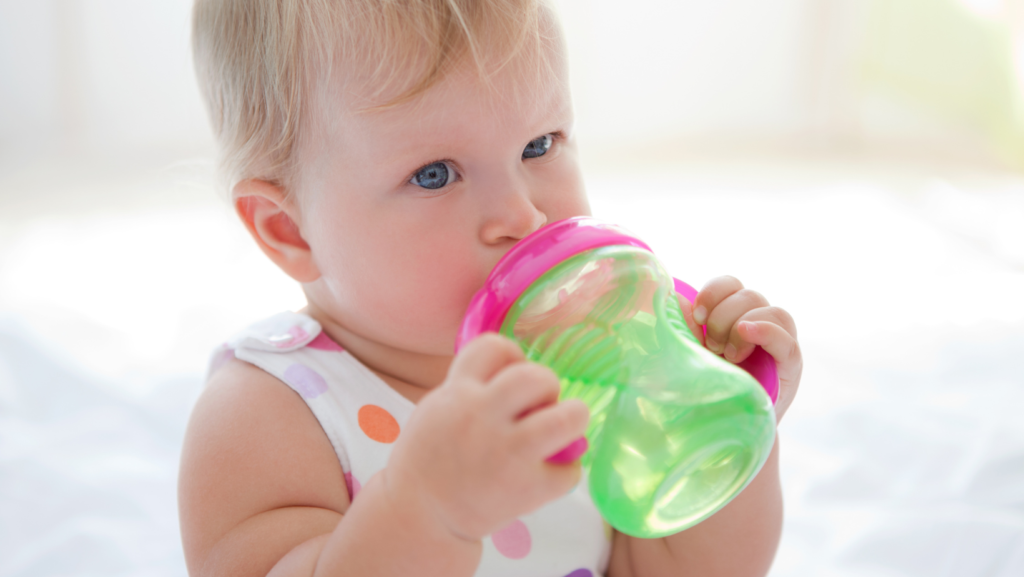
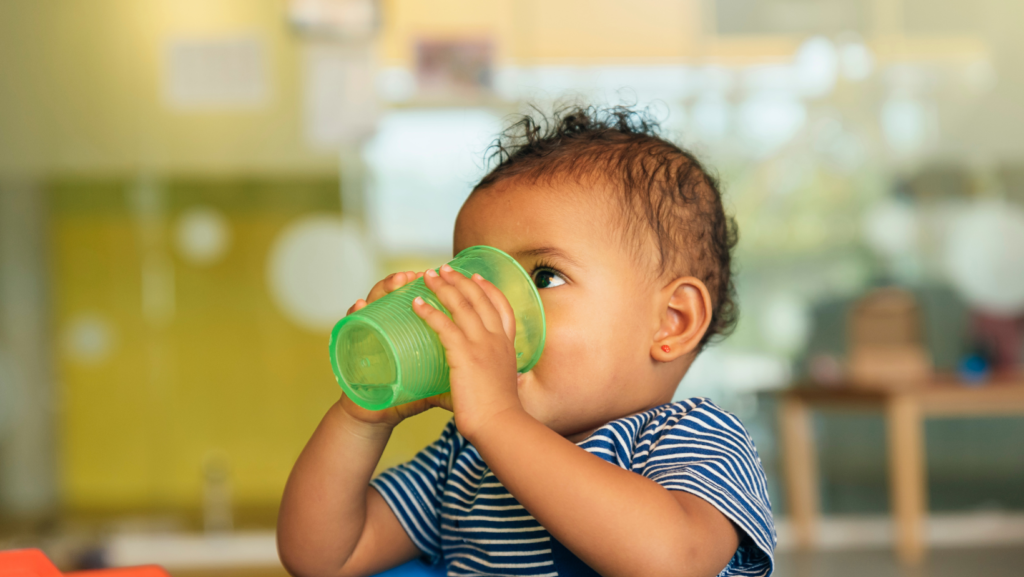
Some of the links below are affiliate links. At no additional cost to you, I will earn a commission if you click through and make a purchase.
Summer Hydration Tips for Infants and Toddlers
When heat and humidity soar, keeping you and your little one hydrated matters more than ever.
Healthy Eating Research states in their 2019 technical report on Healthy Beverage Consumption in Early Childhood:
“Water is the single largest component of the human body and is essential for life, but there is no single daily total water requirement for a given person. Individual water needs can vary greatly, even on a day-to-day basis, because of differences in physical activity, climate, and to a lesser extent, dietary factors.”
You may be wondering does your child need be drinking water and how much? Hydration for kids look different compared to adults. Let’s take a look at the water intake guidelines for infants and young children by age.
Suggested Daily Water Intake for Infants & Young Children
| 6-12 months | 4-8 ounces or 0.5-1 cup per day |
| 12-24 months | 8-32 ounces or 1-4 cups per day |
| 2-5 years | 8-40 ounces or 1-5 cups per day |
Juice recommendations:
| 0-12 months | None |
| 1-3 years | <4 ounces per day |
Tips on Water for Babies <6 months:
Exclusively breastfed babies (0-6 months old) do not need additional water – breastmilk is 87% water and supplies all the fluids that your baby needs. Even in the first few days after birth, before mom’s milk has “come in”, colostrum is all that is needed to keep the baby well hydrated (assuming baby is nursing effectively).
Read my full blog post on water intake for babies here: Water For Babies
Formula fed babies also do not routinely need extra water. Some sources do suggest offering water to a formula-fed baby when it is very hot outside (though the baby may prefer to get extra water from more frequent feeding), or when the baby is sick with a fever. Consult your baby’s doctor for guidelines.
Strategies for keeping your kids hydrated if they won’t drink plain water…
- Try offering it in a variety of different cups
- Water can be introduced as early as 6 months, ideally in an open cup or sippy cup.
- Check out my Amazon List for my favorite cup options for children 6 months +
- Here is my Amazon List for my favorite toddler cup options!
- Try offering fruit infused water
- Hint is a convenient fruit infused water for on the go, contains no added sugar or artificial sweeteners
- Add a splash of 100% fruit juice into their water
- Try a smoothie to increase fluid intake
- If child is <12 months of age, smoothies should not be used as a replacement for breast milk or formula.
- Serve hydrating foods
- Did you know you can hydrate with what’s on your plate — not just what’s in your cup?
- Choosing hydrating fruits and vegetables during meal times can help your little one achieve adequate hydration alongside their breast milk, formula, or water intake
- Serve a hydrating pouch
- Make homemade fruit popsicles for extra hydration – experiment with different varieties. All you need is frozen fruit and your choice of milk or water.
- Try offering store bought no added sugar popsicles – DEEBEES and GoodPop are two of my favorite brands.
- For children <12 months of age they will receive the majority (if not all) of their fluid needs from breastmilk or formula alone. Ensure adequate volumes of breast milk/formula provided daily.
- For children >12 months, milk or milk alternatives also contribute to hydration needs. Early childhood offers an opportunity to establish healthy habits and taste preferences. Encourage young children to drink primarily water and plain milk.
- Water is important for hydration, and plain milk offers many key nutrients including calcium, vitamin D, vitamin A, zinc and protein.
- Fortified soy milk is nutritionally equivalent to cow’s milk and is an acceptable alternative.
- If you have questions surrounding milk transition at the 12-month mark, grab a pre-recorded session of my Let’s Talk Milk Transition Class!

AAP Guidelines for Signs and Symptoms of Dehydration
The following guidelines have been retrieved from the American Academy of Pediatrics:
Be alert for the following warning signs of dehydration, and notify the pediatrician immediately if any of them develop.
Mild to Moderate Dehydration:
- Plays less than usual
- Urinates less frequently (for infants, fewer than six wet diapers per day)
- Parched, dry mouth
- Fewer tears when crying
- Sunken soft spot of the head in an infant or toddler
- Stools will be loose if dehydration is caused by diarrhea; if dehydration is due to other fluid loss (vomiting, lack of fluid intake), there will be decreased bowel movements.
Severe Dehydration (in addition to the symptoms and signals already listed):
- Very fussy
- Excessively sleepy
- Sunken eyes
- Cool, discolored hands and feet
- Wrinkled skin
- Urinates only one to two times per day
Grab my FREE Hydration Tips for Babies and Toddlers E-Book Here!
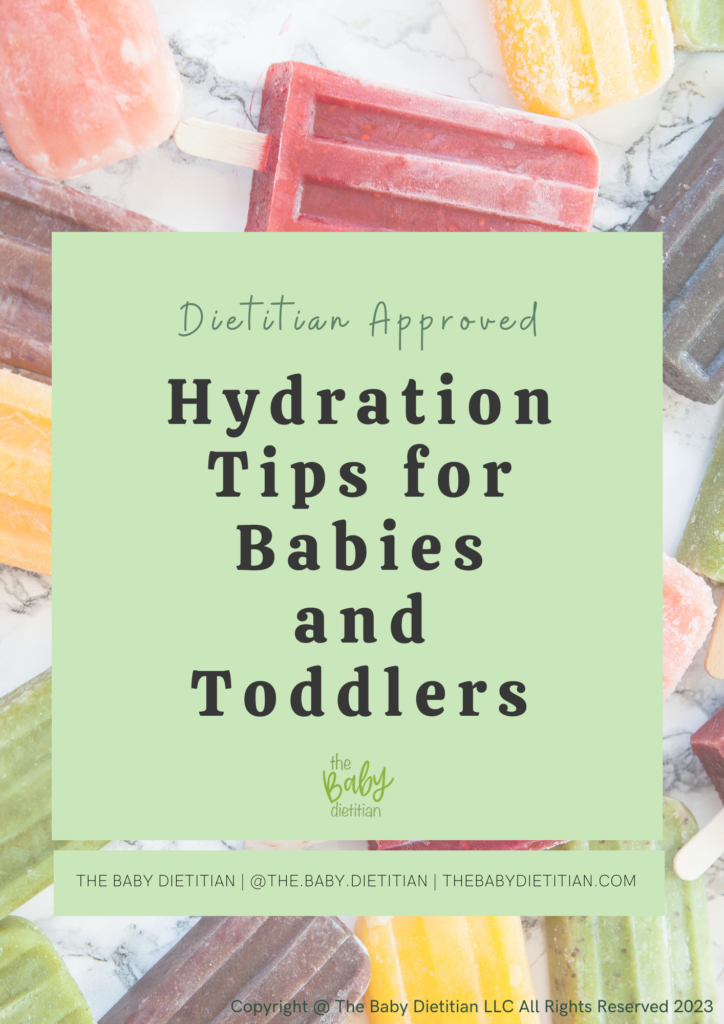

Cinthia Scott is a Registered Dietitian (RD) and International Board Certified Lactation Consultant (IBCLC) with over 7 years experience in the field of dietetics. Cinthia focuses on ensuring optimal nutrition in the first 1000 days of life to ensure optimal growth and development as well as set the stage for long-term health. Cindy is an author, starting solids expert, and advocate for caregivers receiving evidence based education and support surrounding breastfeeding and starting solids.
Cinthia is co-author of the 101beforeone Starting Solids Book, “101beforeone -baby-led feeding cookbook,” and is the founder and owner of The Baby Dietitian LLC which is her private practice built to provide virtual 1:1 services for caregivers surrounding infant nutrition, toddler nutrition, and breastfeeding support. Cinthia is also the creator of the Starting Solids 101 Program which provides caregivers 1:1 support from a Pediatric Dietitian on how to provide optimal nutrition from the start and create healthy eating habits that will last their whole lifetime. To work with Cinthia, you can access her services here.
Cinthia provides tons of free information for parents on her social media accounts as well.
- Instagram: @The.Baby.Dietitian
- Tiktok: @The.Baby.Dietitian

